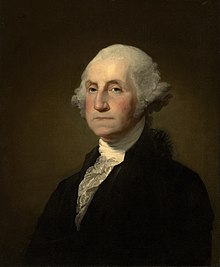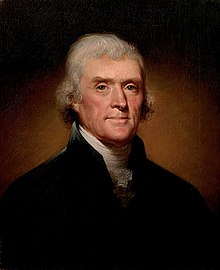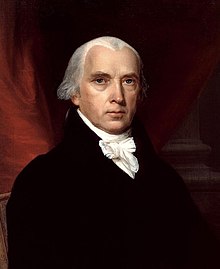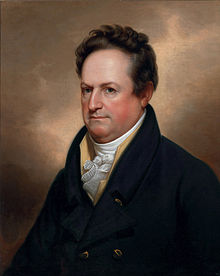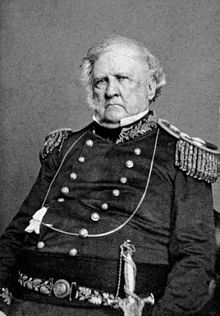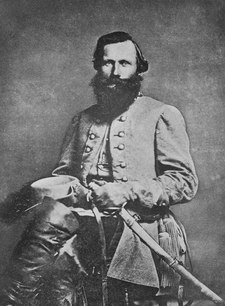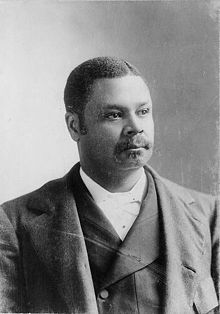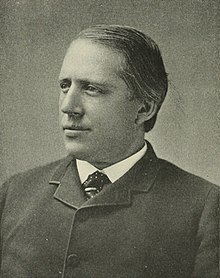The Gilded Age
The Panic and the Mine War: 1889-1904
America during the later days of the gilded age was rife with both corruption and reform attempts. The moonshine democrats and the liberty party both campaigned for legislative action against monopolies and trusts.
The major accomplishments of President Cleveland included the end of reconstruction in the Rebellious Four as well as the end of the Freedonian occupation. It also saw the transformation of the Indian Autonomous Regions into territories, forming eight new potential states. These became the territories of Flathead, Blackfoot, Crow, Lakota, Cheyenne, Nez Perce, Shoshone, and Paiute. In 1890, Shoshone and the Quincy territory were admitted to the Union, and in 1891 Jackson was admitted as well.
As the election of 1892 drew near, the major political parties scrambled to capture the white house. Democrat David B. Hill, noted political rival of Cleveland, was both a supporter of the spoils system and Bimetalism.

President David B Hill: 1893-1897
Hill took office at perhaps the worst possible time. The Panic of 1893 struck twelve days before his inauguration. As a result of the panic, stock prices declined. Five hundred banks closed, fifteen thousand businesses failed, and numerous farms ceased operation. The unemployment rate hit 25% in Pennsylvania, 35% in New York, and 43% in Michigan. Soup kitchens were opened to help feed the destitute. Facing starvation, people chopped wood, broke rocks, and sewed by hand with needle and thread in exchange for food. In some cases, women resorted to prostitution to feed their families. (Source: Wikipedia, Panic of 1893.) Several cities created community gardens for farming. President Hill was forced to borrow $65 million in gold from JP Morgan, cementing his legacy as the worst president since James Madison. The economy eventually began to recover. The territories of Utah and Clark were admitted during his term.
The Liberty Party easily captured the white house the following election, propelling William McKinley to the highest office in the land.
William McKinley: 1897-1904
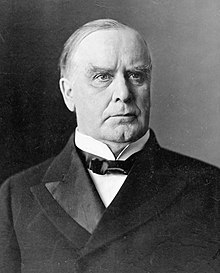
McKinley would raise protective tariffs to encourage American industry and promoted sound money, returning the nation to the gold standard. Early in his term, Congress passed the Sherman Anti Trust Act. McKinley, though laissez-faire, encouraged the breaking of powerful trusts, but also saw consolidation as a positive. Labor conflict and unemployment both fell. Cheyenne and Crow were admitted between 1898 and 1900.
In March, 1902, a crisis was brewing in the Virginian mountains. The western portion of the old dominion had been neglected and dominated by the tidewater region. Coal mining companies dominated the region, forcing miners to buy only from company stores and forced many to rent company houses. Poverty stagnated the air like the coal dust. Fatalities were incredibly high in the profession. It came to a head when the miners striked. They demanded a renegotiation of their contracts. Thousands in the lower counties joined the movement, supported by the United Mine Workers. The companies retaliated the strike by firing into the tents of the miners. This forced the miners to fight back in an ever escalating conflict that would be know later as the Mine War. The mine war soon spread across the mountain as the movement gained steam. The governor of Virginia declared martial law and the national guard marched to confiscate the weapons of the miners. The miners by this point had been at war for months and had become hardened veterans. They dug into the mountains, refusing to surrender. The socialist party of America, when alerted to the events, decried it as "A travesty much like Lexington in 1775." President McKinley involved the U.S. army and ordered the governor of Virginia to recall the National Guard. The conflict ended in July of 1902. The miners and company heads were tried by the supreme court. 837 of the miners were convicted of treason, murder, and insurrection. 598 members of the various private detective agencies, mercenaries, and strike breakers were also convicted of similar crimes.
In response to the Mine War and the negligence of Tidewater, many of the western counties sent delegates to Wheeling to discuss a possible separation from Virginia. The Wheeling convention attracted national attention. Fierce debates rang in Congress, the Virginia general assembly, and the convention about separation. In May of 1903, several of the counties were allowed to leave and form the new state of Kanawha with it's capital at Wheeling.
US States in 1904
1 Delaware
2 Pennsylvania
3 New Jersey
4 Georgia
5 Connecticut
6 Massachusetts
7 Maryland
8 South Carolina
9 New Hampshire
10 Virginia
11 New York
12 North Carolina
13 Rhode Island
14 Vermont
15 Kentucky
16 Tennessee
17 Ohio
18 Louisiana
19 Indiana
20 Mississippi
21 Illinois
22 Cherokee
23 Creek
24 Maine
25 Rubrum
26 Texas
27 Albion
28 Missouri
29 Iowa
30 Hanover
31 Nebraska
32 Shoshone
33 Quincy
34 Jackson
35 Utah
36 Clark
37 Cheyenne
38 Crow
39 Kanawha
America during the later days of the gilded age was rife with both corruption and reform attempts. The moonshine democrats and the liberty party both campaigned for legislative action against monopolies and trusts.
The major accomplishments of President Cleveland included the end of reconstruction in the Rebellious Four as well as the end of the Freedonian occupation. It also saw the transformation of the Indian Autonomous Regions into territories, forming eight new potential states. These became the territories of Flathead, Blackfoot, Crow, Lakota, Cheyenne, Nez Perce, Shoshone, and Paiute. In 1890, Shoshone and the Quincy territory were admitted to the Union, and in 1891 Jackson was admitted as well.
As the election of 1892 drew near, the major political parties scrambled to capture the white house. Democrat David B. Hill, noted political rival of Cleveland, was both a supporter of the spoils system and Bimetalism.

President David B Hill: 1893-1897
Hill took office at perhaps the worst possible time. The Panic of 1893 struck twelve days before his inauguration. As a result of the panic, stock prices declined. Five hundred banks closed, fifteen thousand businesses failed, and numerous farms ceased operation. The unemployment rate hit 25% in Pennsylvania, 35% in New York, and 43% in Michigan. Soup kitchens were opened to help feed the destitute. Facing starvation, people chopped wood, broke rocks, and sewed by hand with needle and thread in exchange for food. In some cases, women resorted to prostitution to feed their families. (Source: Wikipedia, Panic of 1893.) Several cities created community gardens for farming. President Hill was forced to borrow $65 million in gold from JP Morgan, cementing his legacy as the worst president since James Madison. The economy eventually began to recover. The territories of Utah and Clark were admitted during his term.
The Liberty Party easily captured the white house the following election, propelling William McKinley to the highest office in the land.
William McKinley: 1897-1904

McKinley would raise protective tariffs to encourage American industry and promoted sound money, returning the nation to the gold standard. Early in his term, Congress passed the Sherman Anti Trust Act. McKinley, though laissez-faire, encouraged the breaking of powerful trusts, but also saw consolidation as a positive. Labor conflict and unemployment both fell. Cheyenne and Crow were admitted between 1898 and 1900.
In March, 1902, a crisis was brewing in the Virginian mountains. The western portion of the old dominion had been neglected and dominated by the tidewater region. Coal mining companies dominated the region, forcing miners to buy only from company stores and forced many to rent company houses. Poverty stagnated the air like the coal dust. Fatalities were incredibly high in the profession. It came to a head when the miners striked. They demanded a renegotiation of their contracts. Thousands in the lower counties joined the movement, supported by the United Mine Workers. The companies retaliated the strike by firing into the tents of the miners. This forced the miners to fight back in an ever escalating conflict that would be know later as the Mine War. The mine war soon spread across the mountain as the movement gained steam. The governor of Virginia declared martial law and the national guard marched to confiscate the weapons of the miners. The miners by this point had been at war for months and had become hardened veterans. They dug into the mountains, refusing to surrender. The socialist party of America, when alerted to the events, decried it as "A travesty much like Lexington in 1775." President McKinley involved the U.S. army and ordered the governor of Virginia to recall the National Guard. The conflict ended in July of 1902. The miners and company heads were tried by the supreme court. 837 of the miners were convicted of treason, murder, and insurrection. 598 members of the various private detective agencies, mercenaries, and strike breakers were also convicted of similar crimes.
In response to the Mine War and the negligence of Tidewater, many of the western counties sent delegates to Wheeling to discuss a possible separation from Virginia. The Wheeling convention attracted national attention. Fierce debates rang in Congress, the Virginia general assembly, and the convention about separation. In May of 1903, several of the counties were allowed to leave and form the new state of Kanawha with it's capital at Wheeling.
US States in 1904
1 Delaware
2 Pennsylvania
3 New Jersey
4 Georgia
5 Connecticut
6 Massachusetts
7 Maryland
8 South Carolina
9 New Hampshire
10 Virginia
11 New York
12 North Carolina
13 Rhode Island
14 Vermont
15 Kentucky
16 Tennessee
17 Ohio
18 Louisiana
19 Indiana
20 Mississippi
21 Illinois
22 Cherokee
23 Creek
24 Maine
25 Rubrum
26 Texas
27 Albion
28 Missouri
29 Iowa
30 Hanover
31 Nebraska
32 Shoshone
33 Quincy
34 Jackson
35 Utah
36 Clark
37 Cheyenne
38 Crow
39 Kanawha
Last edited:
